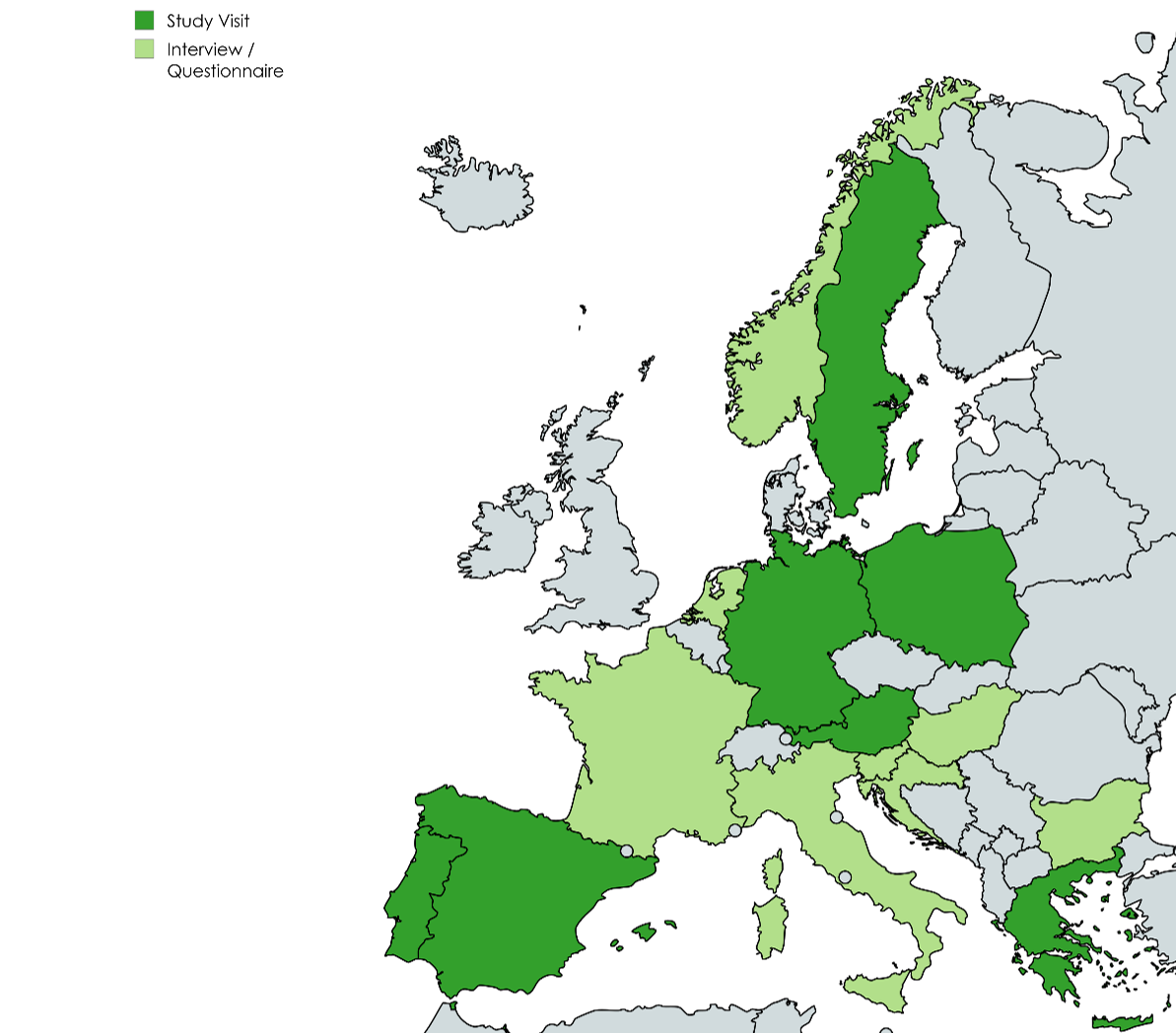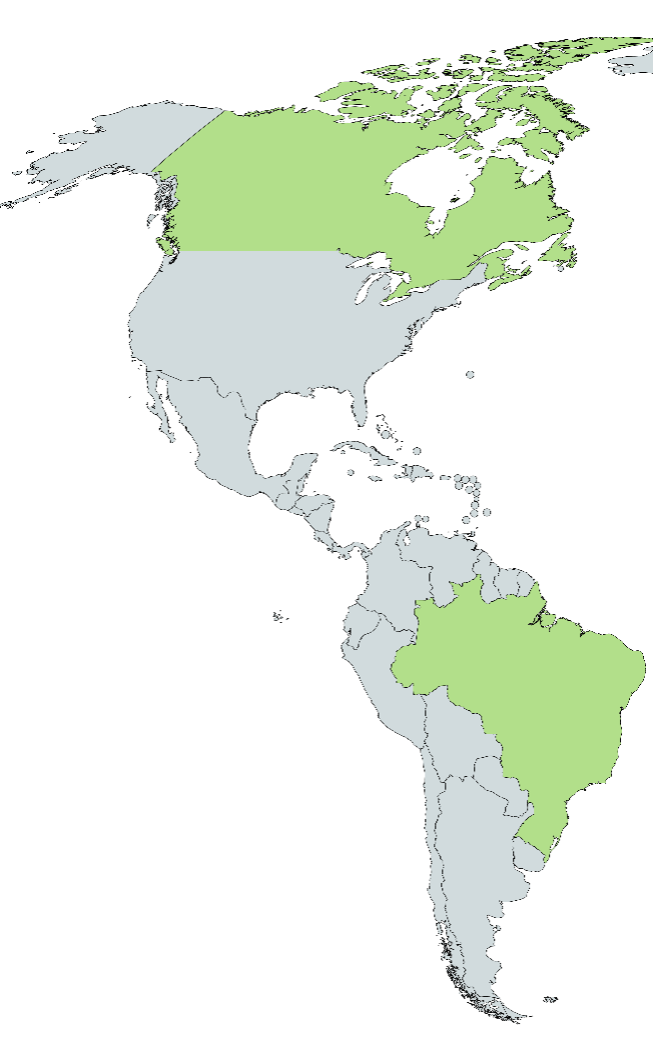
The SimpliVi Study Visits provided a very deep, detailed and practical insight into the matter of judicial cross-border videoconferencing in the selected countries. However, to gain a broader perspective it was necessary to extend the analysis to a significant larger number of countries. For this purpose, SimpliVi chose the approach of remote interviews. The project contacted all European member States and received a very could reply ratio. In total, 14 Member States provided input (remotely or with a study visit) for the project. Additionally, Brazil, Canada and Norway added their perspective from a Third Country on the topic. Also, some EJN Contact Points were interviewed with a special focus on the cross-border aspect of judicial videoconferencing. In total, the following countries provided input:
30/08/2023 – Stockholm, Sweden: Study Visit
31/08/2023 – Jönköping, Sweden: Study Visit
18/10/2023 – Brazil: Interview
07/11/2023 – Croatia: Interview
15/11/2023 – Athens, Greece: Study Visit
23/11/2023 – Italy: Interview
29/11/2023 – Netherlands: Interview
14/12/2023 – Hungary: Interview
12/02/2024 – Bulgaria: Questionnaire
21/03/2024 – Düsseldorf, Germany: Study Visit
10/04/2024 – Wrocław, Poland: Study Visit
30/04/2024 – Norway: Interview
23/05/2024 – Lisbon, Portugal: Study Visit
07/08/2024 – Canada: Interview
11/09/2024 – Madrid, Spain: Study Visit
11/10/2024 – France: Questionnaire
25/10/2024 – Slovenia: Interview
2025 – Additional interviews with EJN contact points
25/6/2025 – Vienna, Austria: Study Visit

Countries interviewed by SimpliVi - Europe

Countries interviewed by SimpliVi - North America
The objective of the remote interviews was not only to get an insight into many different countries but also to compare the situation of the interviewed countries. Therefore, the project partners developed an interview script with initially 70 questions. The questions were clustered along the expected type of interviewee into legal, organisational and technical questions. The interview script was provided in advance to the interviewees to allow for a thorough preparation of the interview. All interviewees made well use of this offer and were very well prepared during the interview. In some cases, several interviewees participated for different aspects. E.g. a judge of Ministry representative for the legal aspects and a videoconferencing practitioner for the organisational and technical aspects. In other cases, only one interviewee was present but with a thorough internal preparation in advance of the interview to be able to answer all aspects. Hence, an efficient interview could be done will all countries. However, the interview did not follow the interview script strictly. The interviewer preferred to have an interactive discussion with all interviewees. The script served well a a guideline through the approx. 90min interview and to make sure that none of the essential topics of the interview was missed.
After a couple of interviews, the interview script was revised. It turned out to be not only too extensive. Quite a number of questions in the later section of the script were usually answered along with related questions in earlier sections of the script. Also, some questions with minor importance were deleted in the revised script.
As mentioned above, all interviewed countries prepared very well their input for the interviews. This required some in-advance internal preparation. For some countries it was therefore easier to pass around the interview script internally and ask for written answers. The interview script was therefore treated as a questionnaire and the answers were collected and provided in a written format to the project.
Videoconferencing is an important facilitator for Hungary, and it seems to have a well-balanced approach. Recording of videoconferences is mandatory but the judge may still decide whether to use the recordings as minutes or a written protocol. The latter is currently preferred, but this might change with better metadata for videoconferences. From an organisational perspective the language barrier is a common issue. From a legal perspective the different regulations of other Member States are not easy to follow.
Norway has a very flexible legal basis for videoconferencing and leaves the decision whether to hold a hearing via videoconference mostly to the judge. Norway has to apply international treaties for cross-border videoconferences, but they try to apply a pragmatic approach which usually works very fine. Cross-border judicial videoconferencing is a relevant use case, although statistics are not available. Two challenges were mentioned regarding cross-border videoconferencing:
+) Summoning of a non-cooperating witness abroad.
+) Proprietary solutions of other countries, which do not follow standards.
Slovenia also has an open approach from a legal perspective to videoconferencing. The content of a party to hold a hearing via a videoconference is regulated differently in civil and criminal law. Slovenia has applied videoconferencing for many years now. The main use case at the beginning was videoconferencing between courts and prisons. Another main driver is the simplicity of the Slovenian solution and the good availability of technical support as both provide a low-threshold offer to use VC. Hence it was reported that Slovenian judges are quite content with videoconferencing because it speeds up proceedings.
by Mathias Maurer
